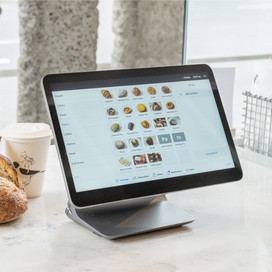Table of contents
Australia’s music industry is a billion-dollar industry that’s seen plenty of growth after the pandemic. If you are a passionate music lover and are interested in creating an Australian record label, this guide will explore how to start a record label in Australia, including setting up your business, finding artists and a few handy tips on marketing your music label.
What do you need to start an Australian record label?
For starters, it’s vital that you set up your record label as a registered business before looking for artists and signing contracts. We have a handy guide on starting a business here to guide you through creating and registering your business – it’s a great starting point to help make this process a little less daunting.
Decide on your business structure
Deciding on your business structure from the get-go can reduce the risk of making costly mistakes later on. It is also important to make sure that you are aware of all the relevant laws and regulations involved in setting up a music business. Your business plan should also include a clear strategy on how you will generate income, as well as plans for marketing and distribution.
It’s also important to consider the legal aspects of running a record label, such as obtaining the right licenses. Different types of music require different licenses (such as public performance or mechanical rights), so it’s best to do some research on this.
Business structure options for Australian record labels
Why would you choose a sole proprietorship over a company or partnership? It depends on your business size and what you want to achieve. Most record labels in Australia are established as sole traders, but several other options are available for those looking for a more formal structure.
Sole proprietor: A single person is responsible for all liabilities and assets associated with the business. This is the simplest and most common form of business structure.
Company: A company is a more complex structure offering members limited liability, but it requires more paperwork and must comply with certain regulations.
Partnership: Involves two or more people working together in the same business, sharing profits and responsibilities. It allows for greater flexibility than a company structure.
No matter which business structure you choose, seeking professional advice and researching is important. Different structures come with different legal requirements and implications, so be sure that you understand the differences before deciding on one.
How to create a profitable record label
We’re all about supporting business owners and artists, so we’ve put together some top tips on how to have a profitable record label. Once you’ve set up your business, researched any licensing requirements and decided on a business structure, it’s time to look for artists and build an audience.
Finding talent
Finding unique talent is key to any record label’s success. Word-of-mouth, press, social media, concerts and festivals are all great ways to find and promote talent. You can also look for fan-generated content, such as covers of other artists’ songs or original compositions that people have posted online – these could be potential signees!
Contracts and legalities
Once you’ve found an artist whose music you think would suit your label, it’s time to discuss contracts and legalities. This can be a tricky process, so it’s important you have a lawyer on hand to give the contract (and any other legal issues) the once-over.
Artist merchandising
In the digital age, it’s important to look at ways to make money beyond just selling records. Artist merchandising is one way of doing this. Creating graphic tees with your artists lyrics and images is a great option, and you can use Square Online to sell your goods and process payments online. You can take advantage of the powerful tools Square for Retail has to offer in order to grow your business and sell more merch!
Mixing, mastering and production
If you plan on producing albums, it’s best to have an experienced team on hand when it comes time to mix and master the recordings. A good sound engineer or producer can make all the difference in achieving a professional-sounding album.
Take advantage of organic marketing
Organic marketing refers to free or low-cost marketing strategies that focus on leveraging connections, content creation and social media presence to promote your label and its artists.
Social media is one of the best platforms for organic marketing, especially for music businesses. You’ll find that most users of platforms like Instagram and YouTube are under the age of 35 – a great target demographic for your label.
Most artists have merchandise that they sell online and at gigs. Merchandising is a great way to market your label and artists. Square Online accepts and manages orders, both online and in-store from social and mobile showroom to the stockroom, for today and tomorrow. And you can easily accept payments in person at shows with Square Terminal.
By getting started with these steps, you’ll be well on the way to a profitable record label in Australia. As well as committing to regular marketing activity, it’s crucial that you stay on top of all legal requirements associated with running a music business. Getting started in Australia’s music industry can be challenging, but with the right attitude and preparation, you’ll be ready for success.
This article is for informational purposes only and does not constitute professional advice. For specific advice applicable to your business, please contact a professional.
![]()











